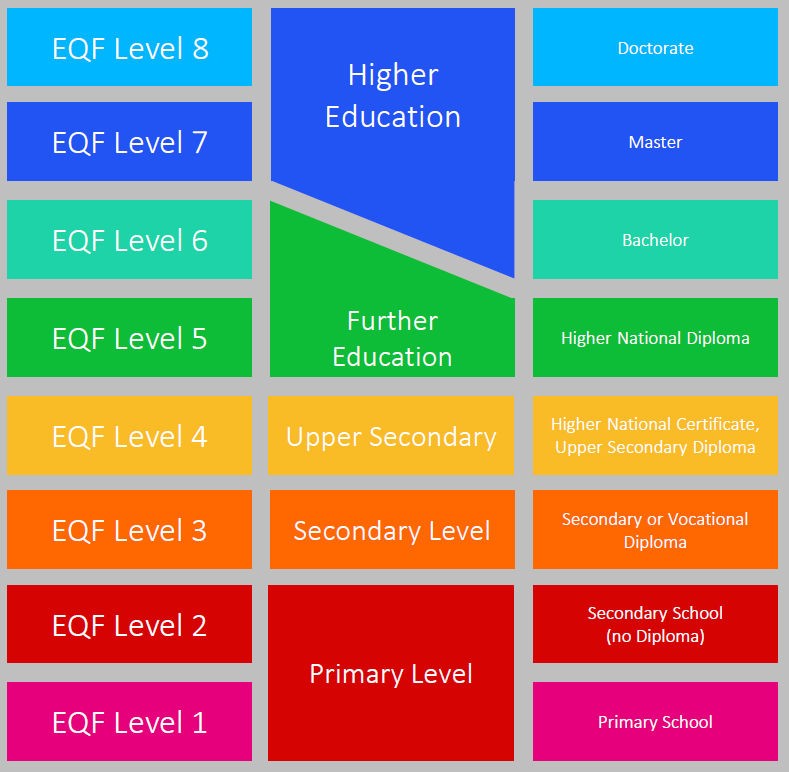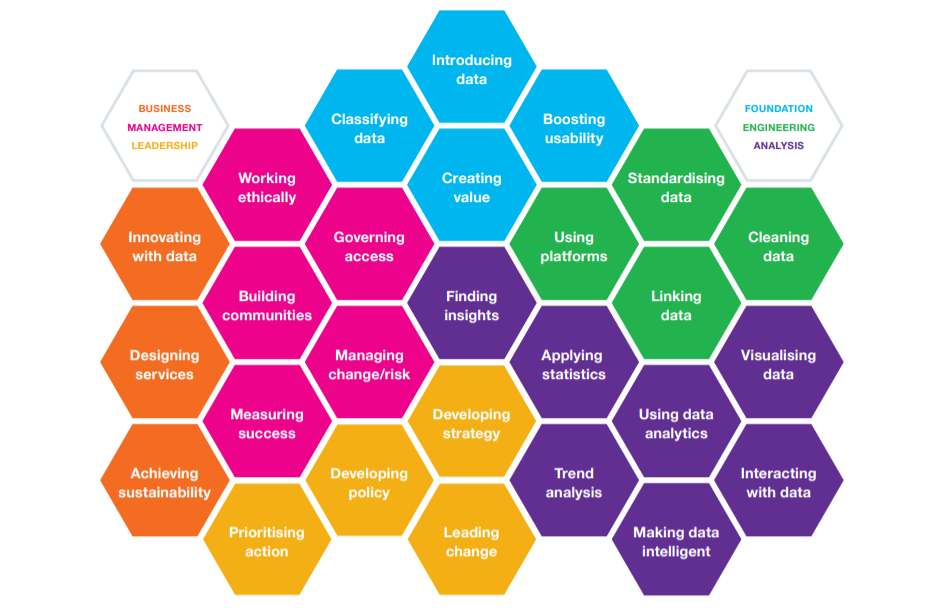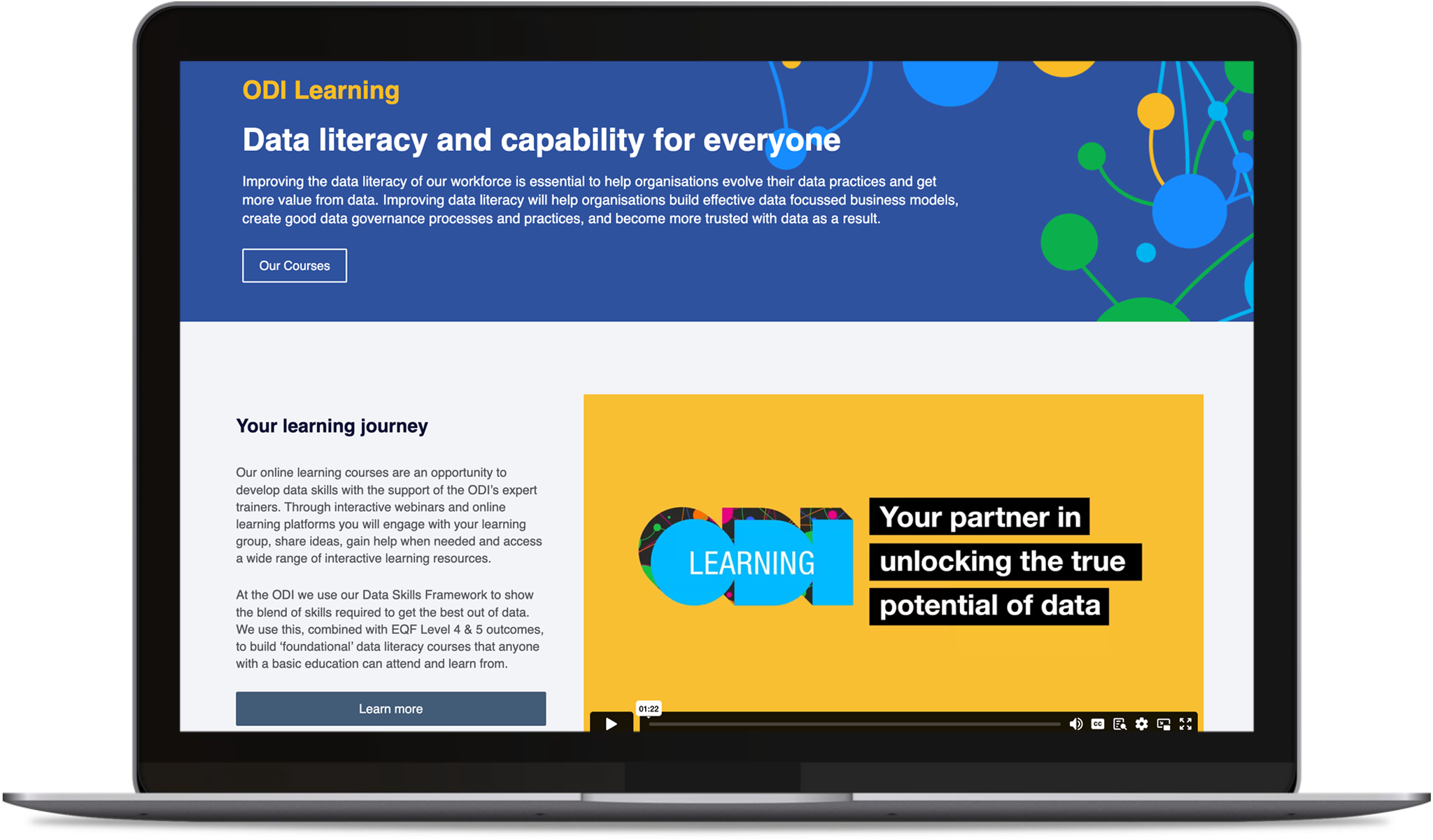
This post was first published 18.01.21 and updated 06.11.23
We need people who can work with data, drive the tools, write code and manipulate the data. But we also need people to be able to critique the use of data, understand its constraints and its impact on society. We need this blend of skills to get the best out of data.
– Dr Jeni Tennison, ODI Vice President – ODI Summit 2020
What is data literacy?
Data literacy is the ability to think critically about data in different contexts and examine the impact of different approaches when collecting, using and sharing data and information.
As said by ODI Vice President Dr Jeni Tennison in ‘What would "data literature" look like?’ (2017):
‘You may remember from your own childhood studying both Language and Literature. Language focuses on reading and writing, the production of material, the manipulation of language. The study of Literature focuses on the study of that language in use, the material produced by different authors, their use of different techniques, the context in which they produced their works and the impact their work had.’
Data literacy is akin to the study of literature. Data literacy should be about the study of data and how it is collected, used and shared by different organisations.
We need to train both the people who are putting data and information out there, as well as those reading it, how to interpret and question it to ensure they understand it and are not being misled or deceived.
– Sir Tim Berners-Lee, ODI President and Co-Founder – ODI Summit 2020
For example, data literacy should focus on:
- Comparing and contrasting how different people use numbers, graphs and infographics to convey important messages on topics such as climate change, population growth or global pandemics.
- Evaluating the impact of bias and limited sampling on important decisions, such as those in the criminal justice system or when hiring decisions are made.
- Examining the ways that data is collected and the purposes of this collection, from irregular collection in a census to sensors in trains, cars and buses that keep those vehicles running, to our interactions with digital assistants.
Data literacy is fundamental to help businesses innovate and make better decisions with data.
– Stuart Coleman, Inside Business Podcast
Improving the data literacy of our population and workforce is essential to help organisations evolve their data practices and get more value from data. Improving data literacy will help organisations build effective data focussed business models, create good data governance processes and practices, and become more trusted with data as a result.
Our challenge is how to get data literacy, and computational thinking, into an already crowded space.
– Sir Nigel Shadbolt, ODI Chairman and Co-Founder – ODI Summit 2020
The ODI is working to improve data literacy
As part of the European Data Science Academy and Open Data Education projects, the ODI (along with project partners) interviewed over 700 people and carried out more than 20 focus groups to discover what data skills people in different sectors, and those in higher education, required. The significant finding was that the highest level of attainment mentioned in the responses mapped to Level 4 of the European Qualifications Framework (EQF). Level 4 represents skills taught just beyond compulsory education, e.g. Level 4 is equivalent to A-level in the UK.

Developing balanced data literacy programmes with the Data Skills Framework
At the ODI we use our Data Skills Framework to show the blend of skills required to get the best out of data. We use this, combined with EQF Level 4 & 5 outcomes, to build ‘foundational’ data literacy programmes that anyone with a basic education can attend and learn from.

While the right-hand side of the framework focuses on the more practical skills of working with data, the left focuses on that critical and strategic thinking to understand its opportunities, constraints and impacts on society and how to manage those.
Down the middle is the ‘data translator’, a highly sought after role in organisations: people who have a balance of skills from each side.
When we teach people on ODI courses, and when we create courses for our clients, we look to balance the skills taught. We aim to provide everyone hands-on experiences of working with data (sometimes using card games, sometimes using simple spreadsheets, on a rare occasion using code – we are happy there too) where learners can discover for themselves the implications of data on business and society. Our goal is to help everyone become more data literate and confident with applying their skills back in their organisations.
So aren't data science and data literacy the same?
If data literacy is about critical thinking, then isn’t that just data science?
Now, we love science! But data science has become more about teaching people to clean data, analyse data and work practically with it, more akin to language skills than than literature skills.
We also see this reflected in what are perceived as the key skills for data workers where there are more calls for the language skills as opposed to the literacy skills. Section 5 of the UK Government's National Data Strategy (updated 9 Dec 2020) makes continued reference to boosting data science skills as a way to solve the data skills and literacy gaps in the UK, while drawing from non-data science programmes such as Airbus. Separating data literacy from data science will be critical to help boost the literacy of our current population, enabling everyone to interpret and question how data is used and presented to ensure they are not being deceived or misled, or making decisions that might lead to harm.
The ODI has chosen to focus specifically on data literacy, as opposed to data skills training. Our educational programmes teach practical skills through experiences that teach people to think critically about data. At the ODI we want a world where data works for everyone, and that means thinking carefully about the decisions we all make about how data is collected, used, analysed and shared.

Want to know more about ODI Training?
What skills does your business need to execute your strategy? Developing data literacy is a critical component of data strategy. Businesses with formal data literacy plans are in the top 20% performing companies by return on sales. But how can you be sure your plans to develop data literacy will give you the strategic impact you need?
On this webinar, we explore how organisations like the BBC, Lloyds of London and the Co-op use the ODI Data Skills Framework to first align their data literacy programmes to their strategy, then identify skill gaps and clarify the best places to invest in learning and capacity development.
Here at The Open Data Institute, we offer a comprehensive range of data literacy courses. Whether you're an individual professional, a visionary leader, or an organisation eager to upskill in the age of AI, our courses offer the expertise you need.
If you want to improve your data quality, get people more confident using data, more aware of data so as an organisation, you make best use of it, Strategic Data Skills will give you the practical knowledge of how to work with data so that the fundamentals are in place and then we teach how to analyse data as a key skill and how to communicate insight for maximum impact. Available both as tutored and self-paced courses
If you are part of an organisation that is keen to promote a culture of data ethics and ensure responsible data practices, our "Understanding Data Ethics & AI" self-paced course ensures you embrace data's benefits while upholding ethical standards and legal frameworks.
Our "Data Ethics Professional" certified programme transforms you into a sought-after data ethics expert, crucial in a world where responsible data use is paramount.
For those seeking to harness the power of AI, "Applying Machine Learning & AI Techniques to Data" provides a non-technical, hands-on approach to understanding machine learning.
And with "Building Healthy Data Ecosystems," you'll confidently navigate your data environment, classify data correctly, and optimise its impact.
In a world where data underpins AI, investing in data literacy upskilling is key!
Connected projects
- EDP - eLearning modules
- Tanzania - Creating and supporting dLab
- BBC - Delivering machine learning training
- Bill & Melinda Gates Foundation - Improving access to Agricultural Data (eLearning)
- WPP - Data for creative transformation (eLearning)